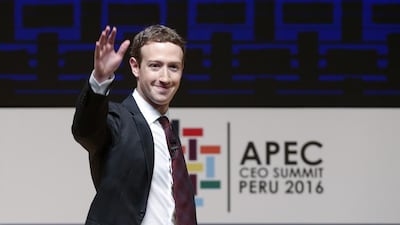The gap between the rich and poor is wider than ever. A report by the charity Oxfam shows that the wealth of just eight men – including Americans Bill Gates, Warren Buffett and Mark Zuckerberg – equals that of the 3.6 billion people who make up the poorest half of the world's population and survive on less than $2 (Dh7.35) a day. But that is just the headline; the reality is somewhat more complex.
It may be easy to buy into the narrative of Oxfam executive director Winnie Byanyim, who called the situation “obscene”, but that is not entirely helpful. First, we should not lose sight of the fact that even the poorest people in the world have a higher standard of living than the poor did last generation, let alone 50 or 100 years ago. According to one study, the number of the extremely poor fell by almost 1 billion between 1990 and 2010. In China alone, hundreds of millions of people have been drawn out of extreme poverty through economic change. In Africa and Asia, diseases that once claimed millions of lives have been eradicated or contained – thanks, in part, to the philanthropy of some of those eight multibillionaires.
The truth is that inequality – the wide gap between rich and poor – has always been with us. But for most of human history, the opportunity to move from dire poverty to wealth, or at least a comfortable middle income, has been almost non-existent. Economic policies that allow the accumulation of wealth by ordinary individuals actually hold out more hope to the poor than other models. This is not to say that there is no role for charity or welfare safety nets to protect the poorest and most vulnerable. But it does mean that growing the economic pie to allow a bigger slice for everybody is a better strategy than pointing the finger at those who have created wealth for themselves and, in many cases, for others.
Governments have a role to play through sensible taxation policies, protecting workers’ basic rights, and programmes that improve access to education and health care and remove barriers to women’s economic progress. What won’t work is the Robin Hood approach of simply taking from the rich to give to the poor.

